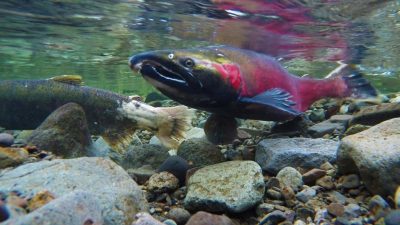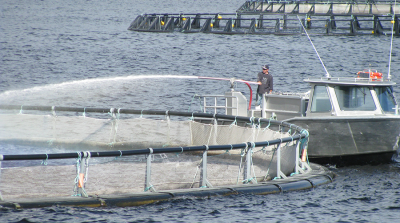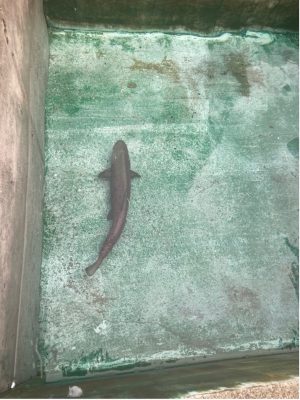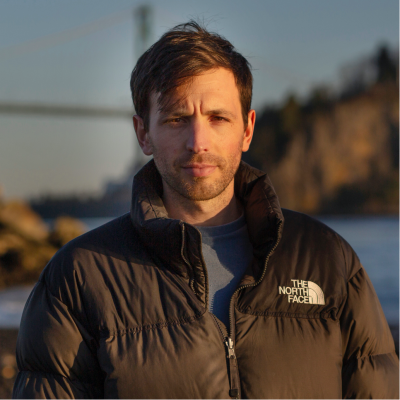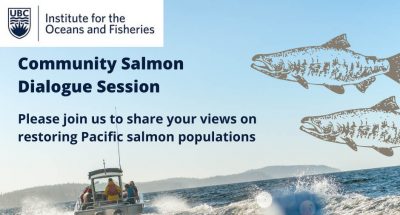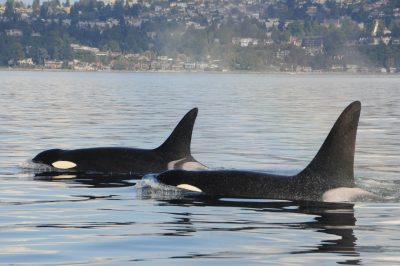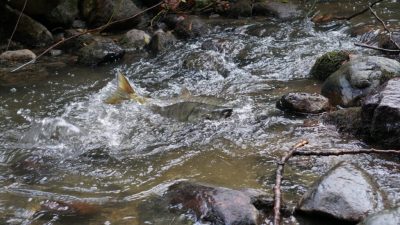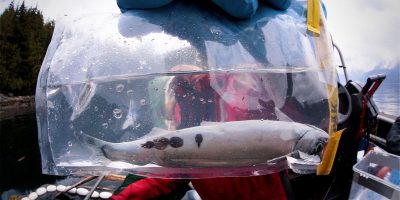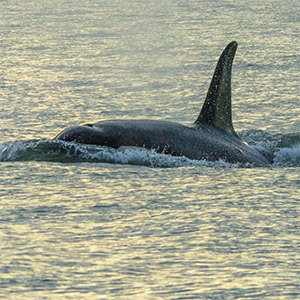The future of Pacific salmon: Community dialogues underscore the urgent need for collaborative restoration
Thirteen public meetings to gather knowledge from local and Indigenous communities in support of salmon rebuilding and recovery in the Pacific Northwest.
Global North’s growing appetite for farmed salmon imperils communities’ access to local fish
The growing appetite for expensive farmed salmon can leave coastal communities struggling to access affordable local fish like sardines and anchovies
UBC researchers investigate thiamine (vitamin B1) deficiency in BC Chinook salmon for the first time
Since the 1990’s, TDC has been associated with fish and seabird declines in the Great Lakes and the Baltic Sea. In addition to direct mortality, TDC includes sublethal effects across all salmon life stages, including reduced visual acuity and feeding rates, reduced migration performance, and impaired immune response.
Gideon Mordecai is named as an Action Canada Fellow
Action Canada selects emerging leaders from across Canada to become Fellows. They represent all sectors, including business, NGOs, science, government and academia. What they share in common is a commitment to Canada and a demonstrated engagement with public policy.
Salmon Dialogues: JOIN US!
Have ideas on how to rebuild and restore Pacific salmon populations? IOF will host 14 Community Salmon Dialogues across BC seeking input from all community members about the future of Pacific salmon. Join us at one of these events.
What could be impacting the food source of Southern Resident killer whales?
There are currently 74 Southern Resident killer whales, and this population is listed as endangered in both Canada and the U.S. The species relies on Pacific salmon (Chinook and coho) for food, however these salmon populations have been decreasing for decades.
Salmon bones confirm sustainable chum fishery for 2,500 years under Tsleil-Waututh Nation
New research confirms that Tsleil-Waututh Nation has consistently and sustainably fished for chum salmon for 1,200 years longer than the archaeological record had previously demonstrated
Dr. Brian Hunt receives NSERC Discovery Grant to research the impacts of urbanization on the coastal ocean
Dr. Brian Hunt will receive an NSERC Discovery Grant for work on the impacts of urbanization on coastal oceans, specifically regarding ocean cities.
Are viruses keeping sea lice at bay in wild salmon?
More than 30 previously unknown RNA viruses in sea lice have been identified by UBC researchers. Sea lice are parasitic copepods (small crustaceans) found in many fresh and saltwater habitats and have been implicated in the decline of wild salmon populations.
Food quality matters for southern resident killer whales, UBC study states
If southern resident killer whales ate just low-lipid salmon, they would have to eat around 80,000 more Chinook salmon every year than if they just ate high-lipid salmon.
